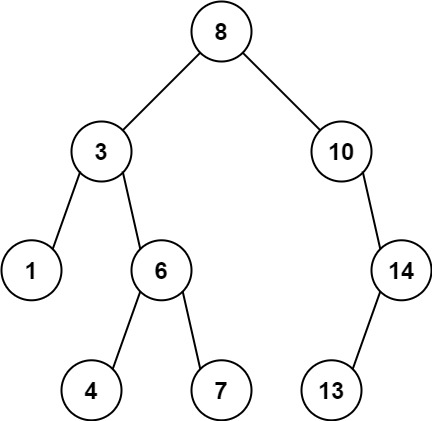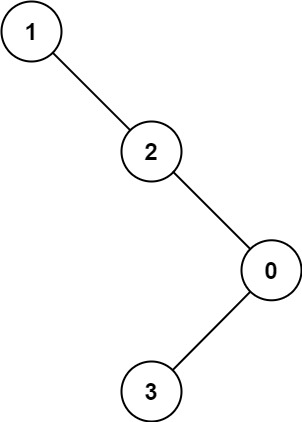1026. Maximum Difference Between Node and Ancestor
1026. Maximum Difference Between Node and Ancestor
Description
Given the root of a binary tree, find the maximum value v for which there exist different nodes a and b where v = |a.val - b.val| and a is an ancestor of b.
A node a is an ancestor of b if either: any child of a is equal to bor any child of a is an ancestor of b.
Example 1:

1 | Input: root = [8,3,10,1,6,null,14,null,null,4,7,13] |
Example 2:

1 | Input: root = [1,null,2,null,0,3] |
Constraints:
- The number of nodes in the tree is in the range
[2, 5000]. 0 <= Node.val <= 10^5
Hints/Notes
- back tracking
Solution
Language: C++
1 | /** |